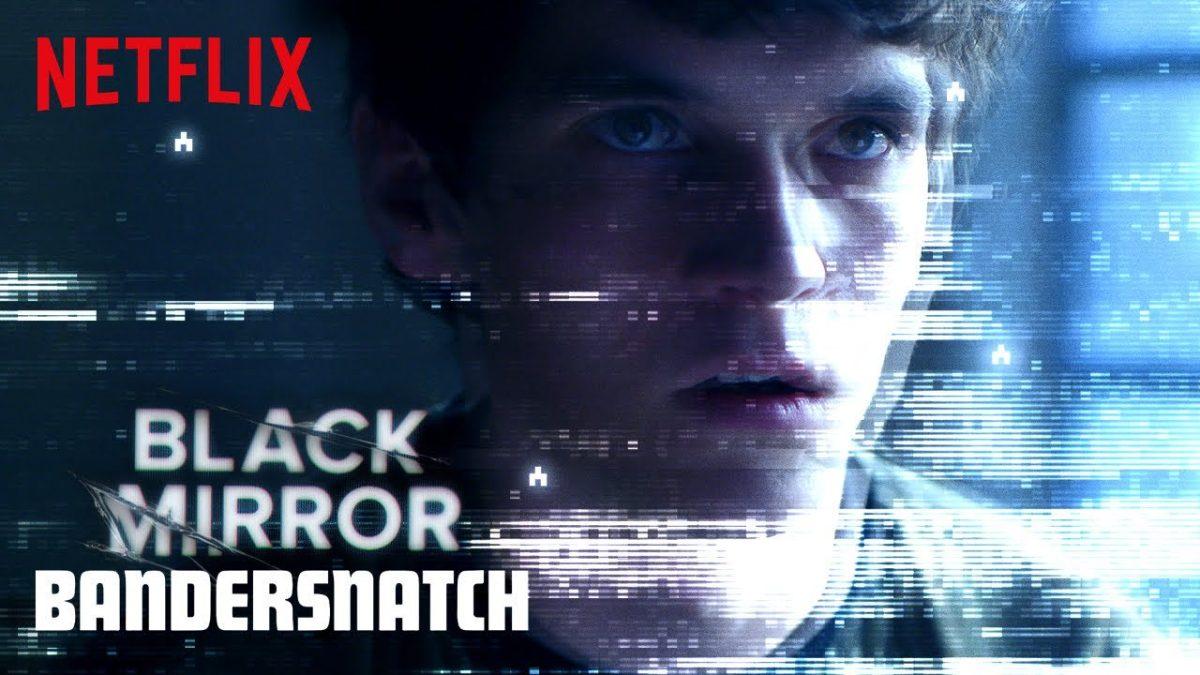Netflix’s interactive film “Black Mirror: Bandersnatch” follows Stefan Butler, a teenager creating a choose-your-own-adventure video game called Bandersnatch, based on a book of the same name. Directed by David Slade, this interactive type of film is not only new to the “Black Mirror” anthology series but also to the film industry as a whole.
The film allows the viewer to make choices for the character, ranging from what breakfast cereal Stefan should eat to decisions that will lead to a morbid ending of the film. The film does this by pausing throughout the movie and giving the viewer 10 seconds to pick between two options, resulting in a scene with the option you picked in mind. This results in a flowchart-like narrative that hinges on prior choices.
Starting with the familiar aspects of this film, the acting is very hit or miss. Fionn Whitehead, who plays Stefan, does a great job portraying a traumatized and isolated video game developer. However, the supporting cast is another story. Will Poulter makes the viewer feel intentionally uncomfortable but at the same time is very rigid in his expression when the character is clearly written to show some emotion. The rest of the supporting cast only has a few speaking lines, giving the film an impression that it’s an amateur production rather than a million dollar property, especially when compared to the incredibly high standards set by the “Black Mirror” series in previous episodes.
The interactive aspect of this film is incredibly unique and frustrating. Due to the nature of the film, it is forced to pause constantly and allow the viewer to make a choice, which cuts tension and halts momentum. Depending on the choices you make, the film will allow you to go back to a critical decision to help you explore different routes. When you make the choice after a reset, the movie plays in fast forward where only the highlights of the story play, which helps the viewer keep track of where they are in the story.
The film is basic in its cinematography but strengthened by series creator Charlie Brooker’s screenplay. “Bandersnatch” is written very well, with characters given clear motivations and the plot taking classic “Black Mirror” twists and turns. The story helps the viewer look past the technical issues with the interactive format and focus on how the film will ultimately end.
The key aspects of this film are its interactive elements and what this combination of film and video game means for the entertainment industry as a whole. The biggest benefit of playing a video game is the interactive nature, while the biggest benefit of a film is seeing a story the creators want to tell. “Black Mirror: Bandersnatch” falls off the tightrope when trying to balance both media of entertainment. Due to the need to keep a concise narrative, the viewer feels like they’re never really in control of how the story plays out — that the interactive nature is only a facade. The audience is still just an observer to the story the creators want to tell, unlike in a story-driven video game, where the player constantly feels like a part of the journey.
Another issue is that even though the viewer is at the whim of the story the creators want to tell, the different endings and paths the narrative can take leave the viewer unsure of what the creator is trying to say. What is true becomes unclear as different choices often lead to contradicting narratives. This film is extremely well-written after you make your choice, but as soon as you hit an inevitable reset, the story becomes too convoluted.
Overall, “Bandersnatch” is an interesting film that is held back by the medium it uses. At this point, interactive films are impossible to be played for mass audiences, and these elements ultimately harm the story, showing that creators are better off choosing a medium rather than combining. It feels as if there are multiple interesting films in Bandersnatch, but none of them are ever explored. This film is perfect for someone that has two hours to spare, but it isn’t the industry-breaking film the creators were hoping it would be.
Navid Nathani is a business administration sophomore and Life &Arts writer for The Battalion.
“Bandersnatch” is a good story hindered by its interactive nature
January 14, 2019
Photo by Creative Commons
Black Mirror: Bandersnatch, an interactive film, was added to Netlix’s movie queue Dec. 28, 2018.
0
Donate to The Battalion
$1865
$5000
Contributed
Our Goal
Your donation will support the student journalists of Texas A&M University - College Station. Your contribution will allow us to purchase equipment and cover our annual website hosting costs, in addition to paying freelance staffers for their work, travel costs for coverage and more!










